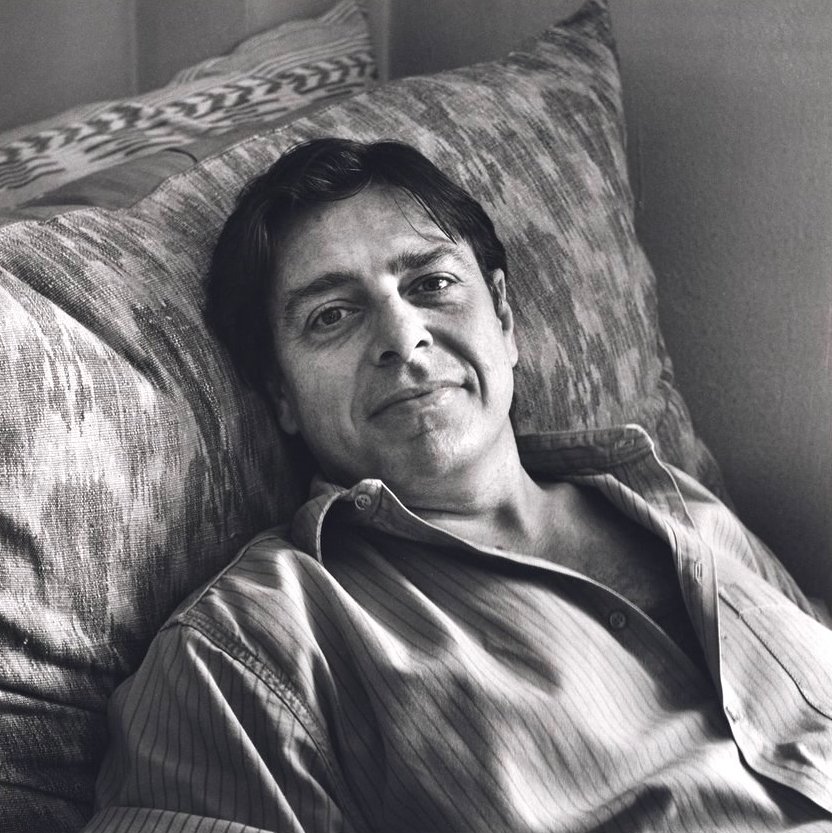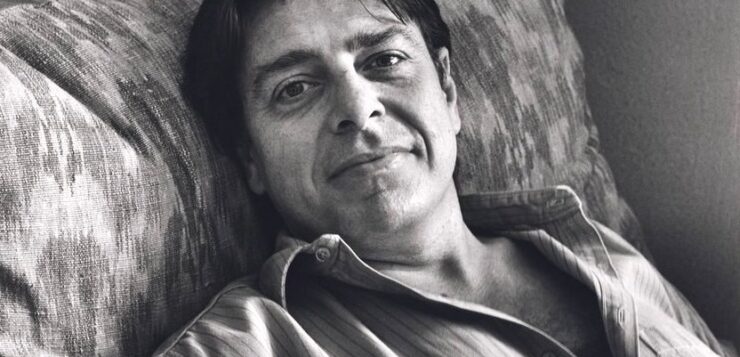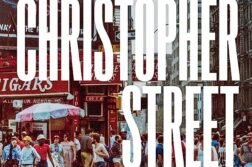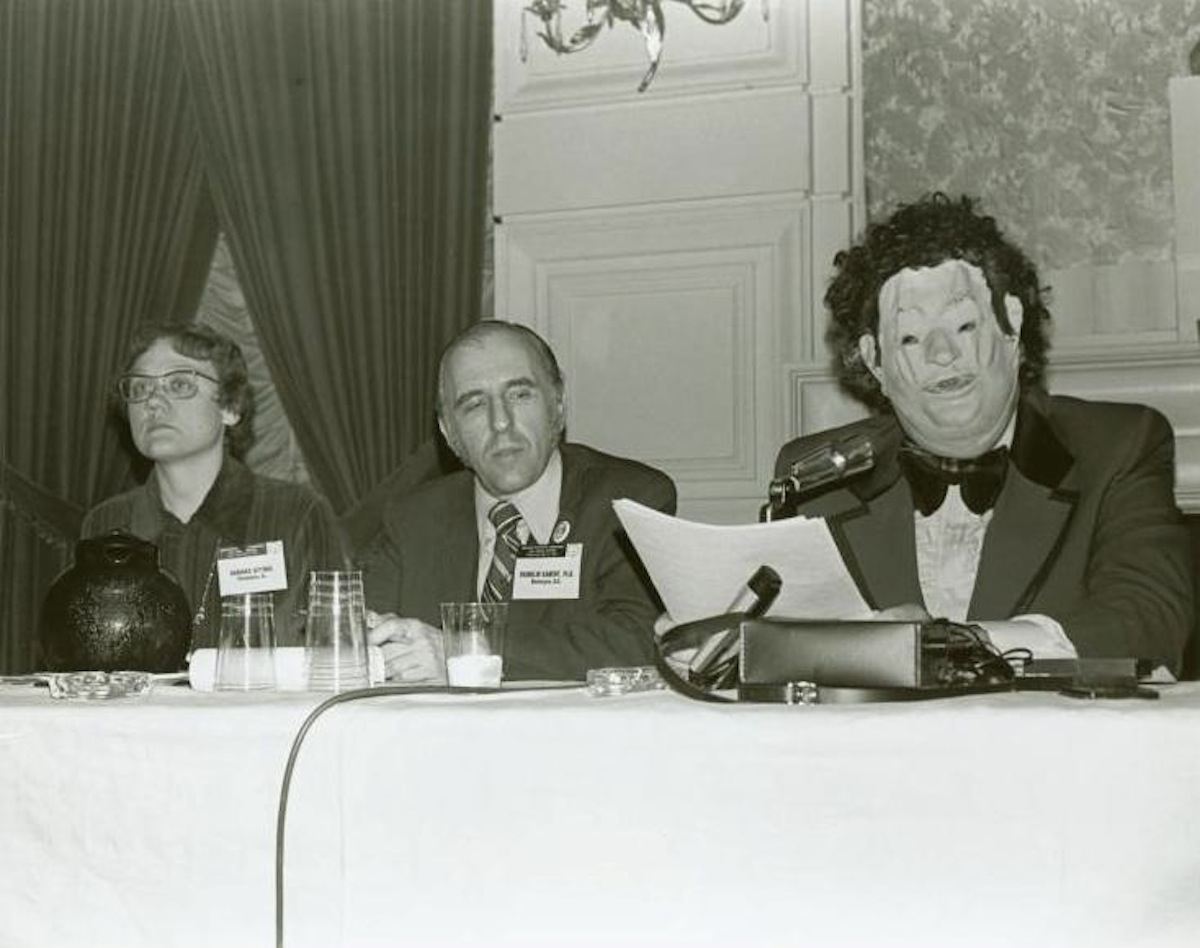The following is adapted from a tribute given at the Publishing Triangle Awards ceremony, April 27, 2023, at the New School in New York City.
MICHAEL DENNENY’S VISION and dedication inform and define how our books get published, find readers, and create culture. He died on April 15th. I’m so glad he got to hold in his hands his own new book On Christopher Street: Life, Sex, and Death after Stonewall [reviewed in this issue].
Life, sex, death, Stonewall, Christopher Street: Michael knew about all of these things. As a person, as an intellectual, and as a participant in the gay life of New York, he knew a lot about the life we’ve been making for ourselves; he helped bring to articulation the life we led then and lead today. And he certainly knew about sex, and love, writing a book of interviews with gay male lovers, living the life of an urban, post-Stonewall gay man. He would even go to the baths on his lunch hour, which I as a young editor took careful note of as a workday opportunity.
He knew about death, too. Michael came to New York in the 1970s and lived to endure, survive, and chronicle the scourge of AIDS. Like so many gay men and lesbians in New York, he cared deeply for people with AIDS that he loved and lost. His lost authors are their own pantheon. And surely he knew about Stonewall, naming his series of lgbtq books Stonewall Inn Editions. His career and sensibility essentially spanned the entire fifty-plus years since the Riots launched an enduring, culture-making activism.

Michael was a founding editor of the magazine Christopher Street. It has been said that Christopher Street was The New Yorker magazine for queer people, but I prefer to think of The New Yorker as the Christopher Street for straight people. The writers he brought to light remain the luminaries of the post-Stonewall literary movement.
During his long tenure at St. Martin’s Press, Michael published such books as For Colored Girls Who Have Considered Suicide When the Rainbow Is Enuf, by Ntozake Shange, and Judith Thurman’s biography of Isak Dinesen, as well as such LGBTQ titles as novels by Christopher Davis, Larry Duplechan, John Fox, Ethan Mordden, Douglas Sadownick, Edmund White, and many more. He also brought out important works of nonfiction such as Reports from the Holocaust: The Story of an AIDS Activist, by Larry Kramer, The Soul Beneath the Skin: The Unseen Hearts and Habits of Gay Men by David Nimmons, poetry collections by Paul Monette, Lesbianism Made Easy, by Helen Eisenbach, and the landmark And the Band Played On: Politics, People, and the AIDS Epidemic, by Randy Shilts.
But Michael’s impact extended beyond the books that he edited with such finesse, intelligence, and care. Through his relentless efforts at St. Martin’s, he created a new publishing model that showed how books targeted to queer readers, especially gay men, could a find large, enthusiastic readership and be published profitably. Before him, nobody believed that queer books could make money. He proved they could.
Michael worked at a press that made its money through publishing myriad books to precise readerships, and queer books thrived in that environment. But this kind of publishing was not easy. Michael was lucky to get a job and keep a job as an out gay man at a time when most gay male editors didn’t publish anything in any shade of lavender. He took risks; he worked the system. It was an often exhausting effort that he excelled at. In our current era, when the issue of sustainability still looms large for all writers, especially our writers, and in an age of corporate consolidations and winner-take-all publishing, his strategies for publishing effectively and profitably are ones we should all look at as we seek a sustainable publishing culture.
When I came into publishing, Michael was already a major figure, a formidable but always genial and engaging one. He was my model, and to some degree my competitor, when I was an editor at Crown and he was at St. Martin’s. He and I shared authors, including Paul Monette, and traded notes and notions about publishing strategies. When we both became independent editors, Michael was a supportive colleague. It would be wonderful to lunch with him in his book-lined apartment on West 83rd Street. He was an amazing man: generous, loquacious, wearing his considerable intellect lightly, engaged with change, uttering wise and sometimes sardonic remarks in his hearty Rhode Island accent, his face spreading into a wide smile, and smoking those incessant Carltons. Sturdy, enduring, a survivor, an executor, a chronicler, it seemed like he would be here for us forever, a mountain, a harbor, a lighthouse.
Michael’s impact transcends the specifics of the books he edited, published, and wrote. In the words of writer Jonathan Silin, “through his many projects he helped to make our lives legible to others and, perhaps more importantly, to ourselves.” The great mission of lgbtq society and culture over the last 55 years has been to bring our identity and community to articulation—to create the words, the legibility, without which we wouldn’t know ourselves. He helped give us those words that shape our selves and our societies. Thank you, Michael, for all you’ve given, for all you’ve helped to make happen.
David Groff, a poet and independent book editor in NYC, is the author, most recently, of the poetry collection Live in Suspense.





